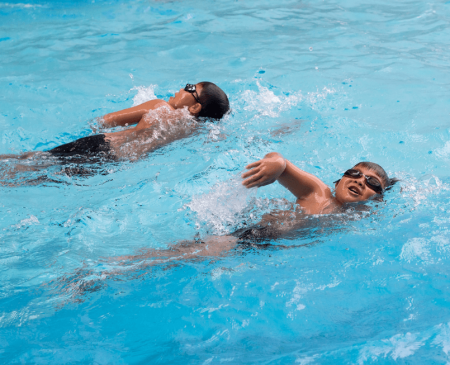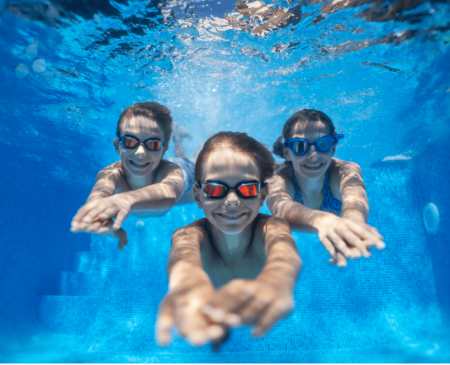How long does it take to learn to swim?
This is probably the most common question swimming programme operators and teachers are asked. And possibly the hardest to answer. Parents and adults alike want to hear an actual number: weeks, months, years.
Any teacher or professional could guarantee you that if you follow such a programme you will learn to swim in a specific time or number of lessons. Firstly, we must recognise that every person if different and because there are so many factors that influence learning, it is not possible to tell how long does it actually take to learn the art of swimming.
The straight and most honest answer is “you never stop learning”.

Swim Levels
But to be more straight forward and realistic, it all depends on which swim level you would like to achieve. How precise do you want your strokes to be? Will you be happy learning the basics of being able to float and move in the water? Or do you envision yourself competing in swim meets?
That’s why perhaps swimming might take a little longer than any other activity and probably that’s the reason to the answer “you never stop learning”. Like any new activity we undertake, it all depends on how much we practice and effort we put into it.
You might have heard of the saying: “Practice makes perfect”. A highly knowledgeable tutor and well respected among the swimming community in Ireland once told me that statement is not totally correct. He said: “Practice only makes permanent. Instead we should say: Perfect practice makes perfectly permanent”.
Factors in learning to swim
Every swimmer’s journey is unique but there are a number of factors that can impact their progress:
1. Water Anxiety
Many beginners are fearful of the water and anxious about being in the pool. Acclimatising to the water can take some time which lengthens the learning process.
2. Consistency
The key to learning how to swim, like any other skill, is about consistency. Keeping pool visits and lessons consistent will greatly improve the swimmer’s progress.
3. Frequency
The more lessons you have, the better you’ll get.
4. Motor Skills
If you’re naturally athletic, you’ll probably pick up skills faster than somebody who isn’t that active. Older children and adults will generally learn faster than young kids too as they’ve better-developed motor skills.
5. Quality of instruction
The quality of swimming instructor can help speed up the learning process through their experience, knowledge and teaching methods.
So I would highly recommend getting a great instructor and practicing as much as you can. If you would like to learn more about swim lessons at Gym Plus click HERE.


